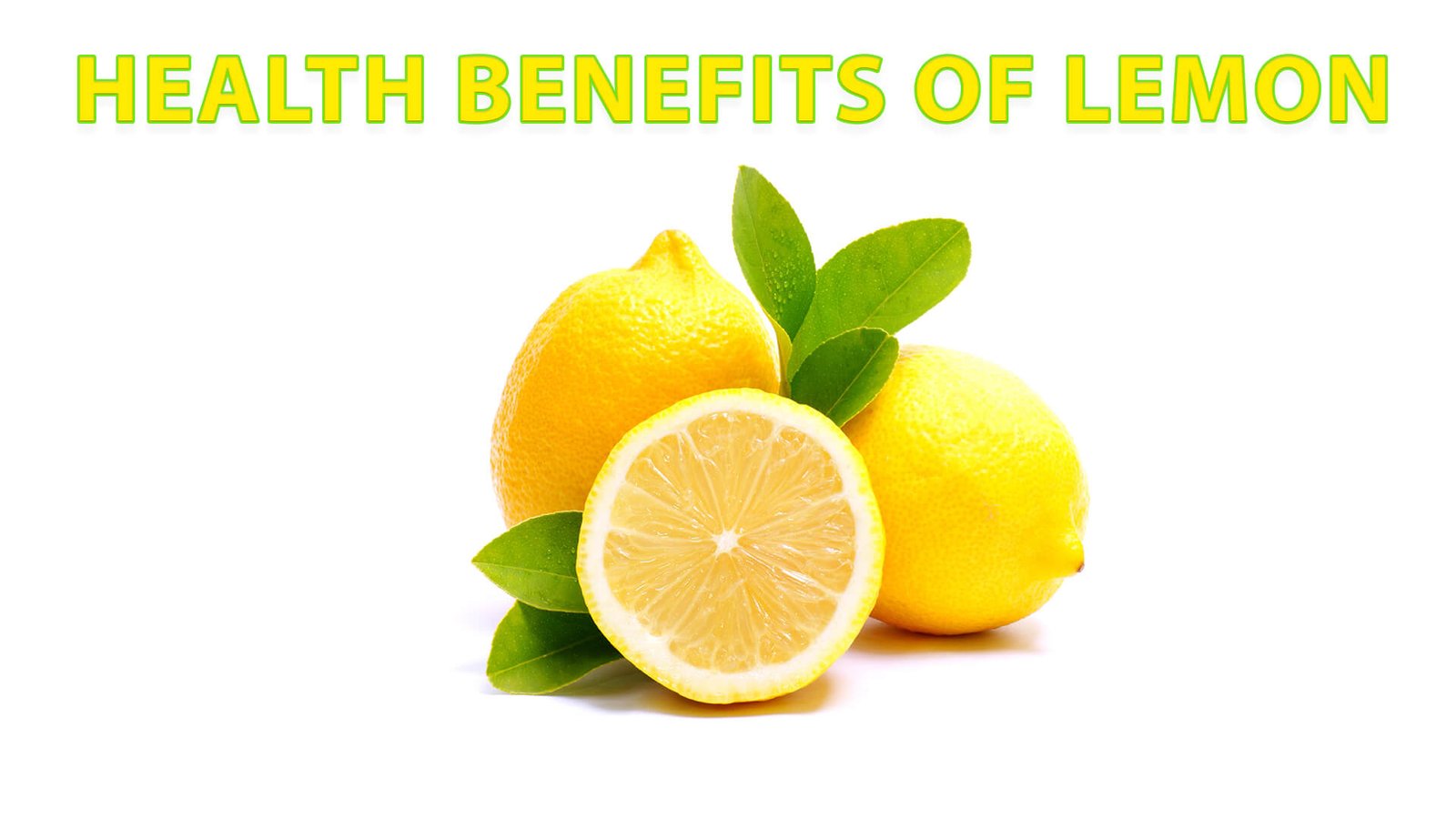Be it lemon juice, lemon pulp or lemon zest, every bit of the lemon is used for one or other reason. Lemon serves to be an excellent source of vitamin C and a good source of folate. But, how to spot the perfect lemon? Well, simply look for these signs;
- Thin-skinned lemons (those with thicker peels will be less fleshy and less juicier)
- Peels with finely-grained texture
- Lemons that are heavy for their size
- Fully yellow lemons are ripe.
- Avoid wrinkled or lemons with a dull colour.
HEALTH BENEFITS OF LEMON
- ANTIOXIDANT AND ANTICANCER EFFECTS
Lemons are rich in unique flavonoids that have anti-oxidant and anti-cancer properties. Lemons contain flavonol glycosides, which include kaempferol-related molecules. They halt the process of cell division in many cancerous cells, but another important and particularly unique property of these molecules is their antibiotic effect.
Substances like calcium, magnesium, pectin and limonene also play an important role in fighting infection and promoting immunity.
A study was conducted in which a fraction of vesicles were obtained from lemon juice as a result of ultracentrifugation and the effect of these vesicles was studied on cancer cells. These nanovesicles had an inhibitory effect on the proliferation of cancer cells in various tumor cell lines [1]. Nano vesicles play a key role in cell to cell communication and have a significant influence on physiological and pathological processes, including cancer cells [1]. Their suppressive effect on the proliferation is through TRAIL-mediated apoptotic cell processes.
Lemons are an excellent source of Vitamin C, arguably nature’s most important antioxidant, which is abundantly found in citrus fruits. By neutralizing the free radicals in the body, it protects the body against free radical damage. These free radicals have the potential of damaging membranes, causing inflammation and swelling. Skin is particularly prone to free radical damage. A study conducted to study the effect of a compound (lem1) isolated from lemon oil, proved that the topical application of this compound caused a significant increase in the antioxidant potential of skin surface [2]
2. WEIGHT LOSS
Lukewarm water with lemon juice and a bit of honey, early in the morning on an empty stomach has been used for centuries to enhance metabolism and thereby weight loss. The vitamin C rich lemon juice in this concoction speeds up the metabolism of fat and increases liver function. It also enhances the role of glutathione, which is not only a vital antioxidant but also plays a key role in quick slimming.
A clinical trial conducted on 84 pre-menopausal women, divided them into three groups, a normal one (Normal-C), one on a placebo diet (Positive-C) and one on lemon detox diet (Lemon-D). Assessment of body weight, body mass index, waist-hip ratio and percentage body fat after an intervention period of 11 days showed that there were significantly greater changes in these parameters in the Lemon-D group as compared to other groups. The study concluded that lemon detox program caused reductions in body fat and insulin resistance [3].
3. PREVENTS KIDNEY STONES
When life gives you kidney stones, make lemonade. Yes, like all other citrus fruit, lemons help in the prevention of kidney stones. Citrate in urine binds calcium and does not let it bind with oxalate, thus preventing the formation of kidney stones. Furthermore, crystals that have already been formed are also prevented from binding to each other, which prevent them from getting bigger and bigger. While you may not be able to tackle all types of kidney stones through this method, you would be able to take care of the most common type at least—those formed from calcium oxalate crystals. 1-2 Liters of lemonade throughout the day can definitely raise the citrate levels in urine.
The effect of lemon juice on calcium oxalate urolithiasis in rats was studied by orally administering lemon juice. Six groups were created, one was given normal drinking water, one was given drinking water containing specific concentration of Ethylene glycol and ammonium chloride (EG/AC) and the rest of the three groups were on 100%, 75% and 50% lemon juice.
After 10 days, when samples were collected for analysis the group on EG/AC group had large deposits of calcium oxalates in kidney, while the group on either concentration of lemon juice did not show these deposits. It was concluded that lemon juice has a protective activity against urolithiasis [4].
Lemons and their juices are packed with goodness and promise innumerable health benefits. Whether it’s about the effect of lemons on wrinkles, acne and dark spots, or its role in halting the growth of bacteria that cause infections, or its anti-oxidative and anti-cancer properties, or simply the weight loss promoting effect, lemons have it all.
REFERENCES
[1] Raimondo S, Naselli F, Fontana S, Monteleone F, Lo Dico A, Saieva L, Zito G, Flugy A, Manno M, Di Bella MA, De Leo G, Alessandro R.Citrus limon-derived nanovesicles inhibit cancer cell proliferation and suppress CML xenograft growth by inducing TRAIL-mediated cell death.Oncotarget.2015 May 18.
[2] Calabrese V, Scapagnini G, Randazzo SD, Randazzo G, Catalano C, Geraci G, Morganti P.Oxidative stress and antioxidants at skin biosurface: a novel antioxidant from lemon oil capable of inhibiting oxidative damage to the skin.Drugs under experimental and clinical research.1999;25(6):281-7.
[3] Kim MJ, Hwang JH, Ko HJ, Na HB, Kim JH.Lemon detox diet reduced body fat, insulin resistance, and serum hs-CRP level without hematological changes in overweight Korean women. Nutrition research. 2015 May;35(5):409-20. doi: 10.1016
[4] Touhami M, Laroubi A, Elhabazi K, Loubna F, Zrara I, Eljahiri Y, Oussama A, Grases F, Chait A.Lemon juice has protective activity in a rat urolithiasis model. BMC Urology 2007 Oct 5;7:18





